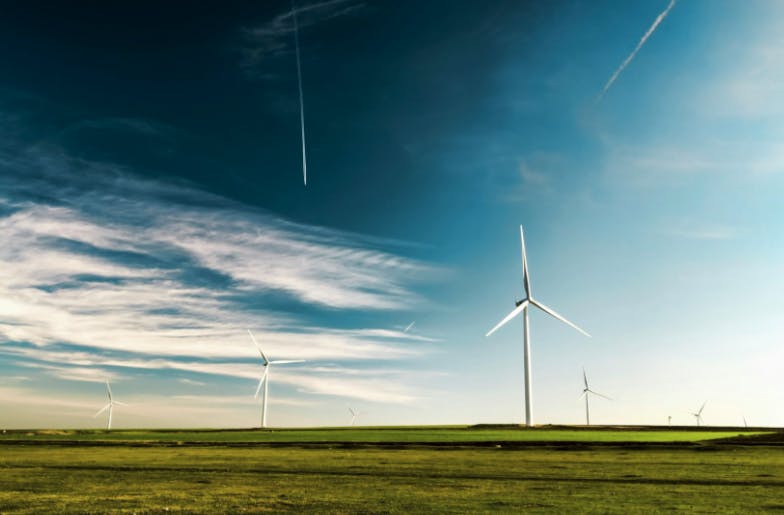When you think of energy companies, you probably don’t think of nimble startups. When many utility companies in the United States have been in operation since the 1800s, it’s clear that this is an industry where change is often incremental — and where established businesses usually tend to crowd out any would-be startups.
Despite that, Jeff Rodgers, Chief Marketing Officer of Indra Energy, is bringing a distinct startup mindset to the utility grid. Even more impressively, it’s working. As he explains, his company’s unique approach to delivering renewable energy, combined with market deregulation, is allowing them to bring the energy and innovation of a startup to a “traditional” niche.
Changing the Standard Utility Company Approach
The most immediately apparent area where Indra Energy shakes up the standard utility world is its emphasis on delivering renewable energy without requiring customers to install solar panels or other expensive equipment.
“We provide 100% renewable energy with electricity plans that are backed by renewable energy credits and by matching natural gas usage to carbon offsets,” Rodgers explains. “This allows our customers to participate in renewable energy right away, without the hassle and expense that goes into a rooftop solar installation.”
Further adding to the convenience for its customers, Indra Energy doesn’t charge any enrollment fees to begin using its renewable energy credits. When compared to the installation cost of $24,000-$36,000 for a typical rooftop system (and with expiring incentives), this no-cost, no-installation approach already serves as a major industry disruptor.
For homeowners who might otherwise not be able to switch to renewables, these energy credit and carbon offset-based plans represent a major step forward in pairing utility selection with lifestyle preferences.
The Importance of Market Deregulation
Indra Energy’s setup is made possible through market deregulation, which allows customers in deregulated markets to pick their preferred energy supplier rather than being tied to a specific supplier. “Energy market deregulation allows us to sell energy to our customers while their local utility provider continues to deliver electricity and natural gas to their home,” Rodgers explains.
“They work with us as an alternate supplier, but the local utility company retains responsibility for dealing with outages, meter reads and infrastructure maintenance. For the customer, the only thing that changes is their supplier, which allows them to make the switch without any disruption to their service.”
To date, Indra Energy operates across 48 utilities in Delaware, Massachusetts, Michigan, New Jersey, Pennsylvania, Virginia and Washington, D.C. In true startup fashion, Rodgers is eager to expand to additional markets, especially as a growing number of states are offering some form of energy deregulation for electricity, natural gas or both.
Of course, actually becoming an alternate energy supplier in these areas still requires market and bureaucratic savvy. Because of this, Rodgers and his team are taking a measured approach to ensure they approach market expansion in a sustainable and compliant way.
Modernizing Utility Services
In addition to providing more accessible renewable energy through its energy credits and carbon offset programs, Indra Energy has implemented several other startup-esque changes to standard utility company offerings.
This starts with the types of plans the company offers. “We offer variable rate plans with rates based on your usage and market rates, which are managed on a month-to-month basis,” Rodgers says.
“These plans can be cancelled at any time, and you can return to your previous supplier just as easily as you started using Indra for your energy needs. We also offer fixed-rate plans that guarantee your rate for either six or 12 months, so you can better plan for energy expenses as part of your budget. With all of these plans, you can cancel at any time. We don’t have long-term contracts to keep you locked in.”
As part of this more transparent approach, Indra Energy’s website even allows customers to enter their zip code to compare rates for available plans in this area. This enables customers to select the plan that best fits their budget and make an informed decision as they explore alternative energy options.
The company also offers a robust rewards program in an effort to modernize the standard approach to using utilities. “We use electricity and natural gas every day, but that doesn’t mean we can’t have fun with them,” Rodgers says.
“So many brands in other industries, from credit cards to restaurants, are finding fun and unique ways to reward their customers and keep them more engaged. We developed our own rewards program to bring that same mindset to utilities. When people can get rewarded in ways that match their lifestyle, from shopping perks to discounted tickets for fun activities, it helps them have a stronger connection with you than thinking of you as ‘just another’ utility company.”
A Rising Tide
As Rodgers and Indra Energy illustrate, there is plenty of room for innovative startup thinking, even in industries that most people wouldn’t associate with change.
By offering a unique, customer-facing model for delivering renewable energy, Indra Energy is quickly becoming a growing force in the markets it serves. With over 123,000 new customers this year alone, it is clear this utility startup is delivering something worthwhile.


